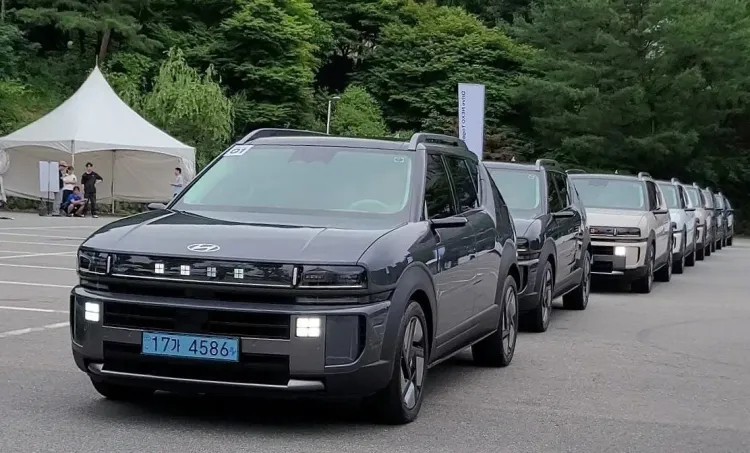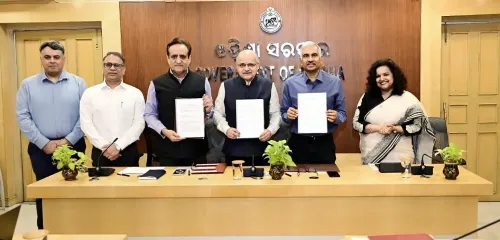How Many Units of Hyundai's New Hydrogen Car Have Been Sold?

Synopsis
Key Takeaways
- Hyundai’s Nexo hydrogen SUV has achieved sales of nearly 7,000 units since June.
- The new model outperformed its predecessor significantly.
- It has a driving range of up to 720 kilometers.
- Hyundai is investing $26 billion in the U.S. for future technologies.
- A new steel plant will be built in Louisiana.
Seoul, Aug 31 (NationPress) Hyundai Motor announced on Sunday that the sales of its revamped Nexo hydrogen-powered SUV have approached nearly 7,000 units since its introduction in June, significantly exceeding the figures of its earlier model.
From June to August, a total of 6,767 units of this advanced hydrogen fuel cell electric vehicle (FCEV) were sold, which is a remarkable increase compared to the 1,500 units sold by the first-generation model within the first three months after its launch in 2018, as reported by the company.
The latest version features an impressive driving range of up to 720 kilometers on a single charge and is equipped with a high-efficiency powertrain that delivers a maximum motor output of 150 kilowatts, according to Yonhap news agency.
To advocate for hydrogen vehicles, Hyundai Motor supplied 32 Nexo SUVs as official vehicles for the Asia-Pacific Economic Cooperation Energy Ministerial Meeting that took place in the southern port city of Busan last week.
“The increasing sales of the Nexo, along with its deployment at global events, suggest that hydrogen mobility is progressively becoming a part of daily life,” remarked a company representative.
In other news, Hyundai Motor Group has announced an increase in its investment commitment to the United States to $26 billion over the next four years, focusing on sectors such as steel, automobiles, and robotics.
This investment, revealed following President Lee Jae Myung’s initial summit with U.S. President Donald Trump in Washington, marks a notable rise from the previous $21 billion pledge made in March.
“Through this investment, Hyundai Motor Group aims to align with U.S. government policies and enhance business opportunities across multiple sectors to strengthen its future competitiveness, particularly in the mobility industry,” the company stated in a release.
As part of the strategy, Hyundai plans to establish a steel manufacturing facility in Louisiana with a production capacity of 2.7 million tons annually, supplying quality low-carbon steel for crucial strategic industries.









